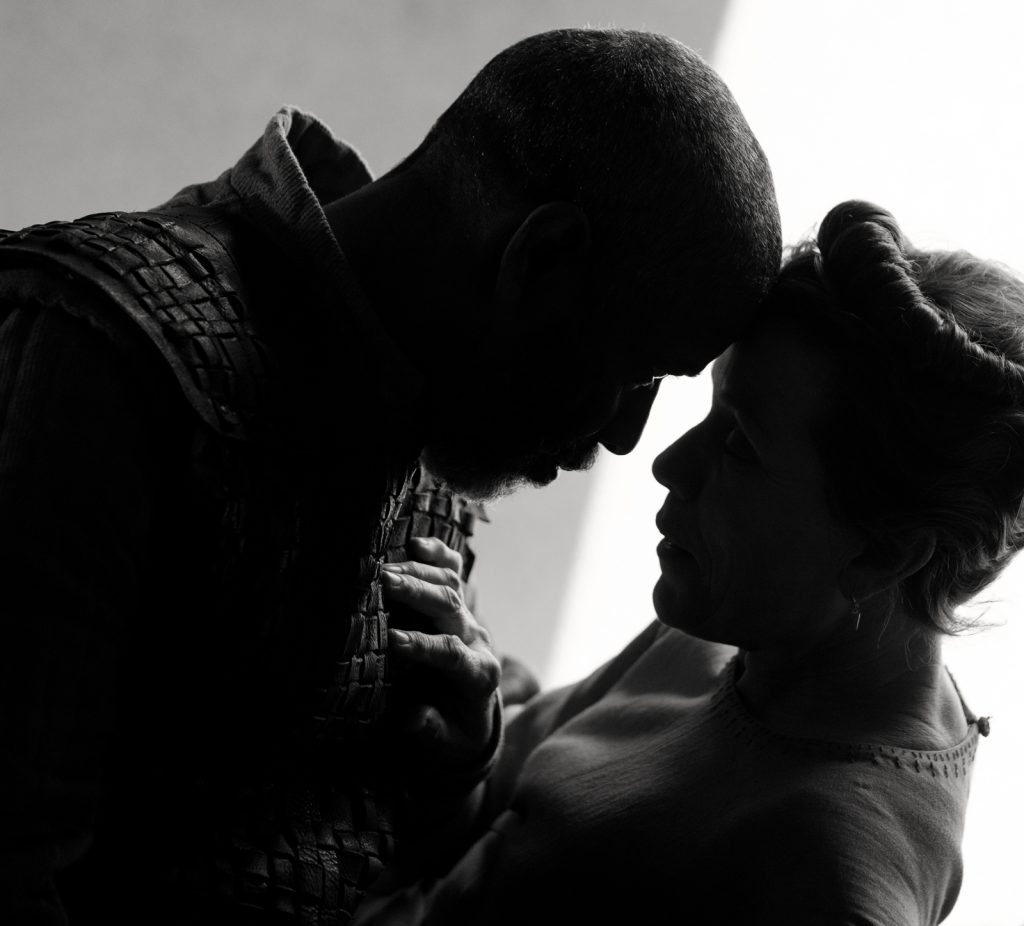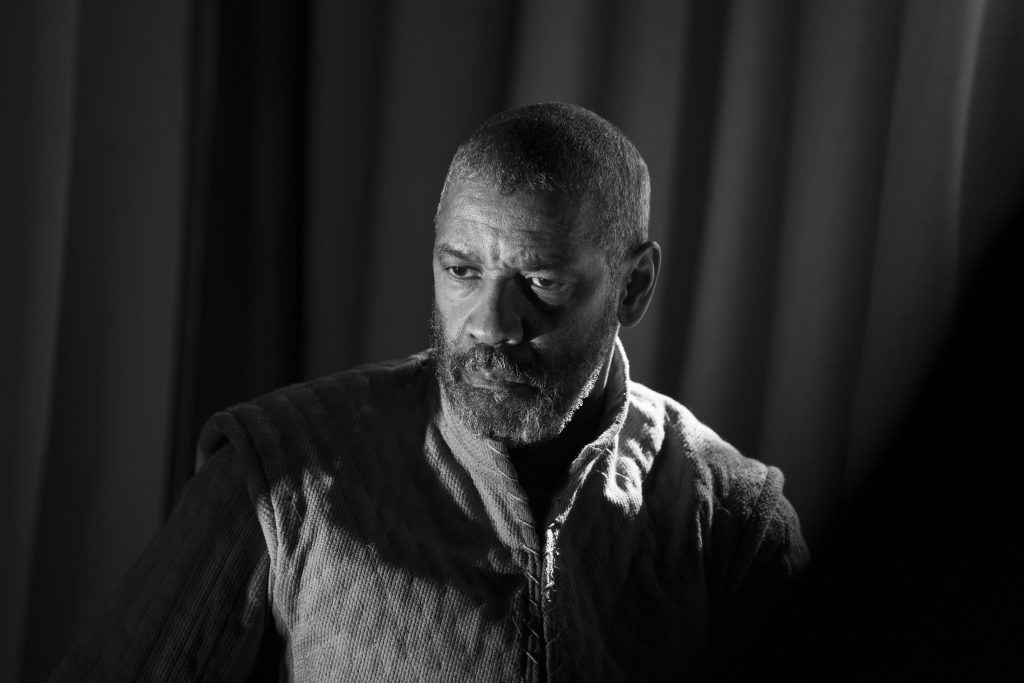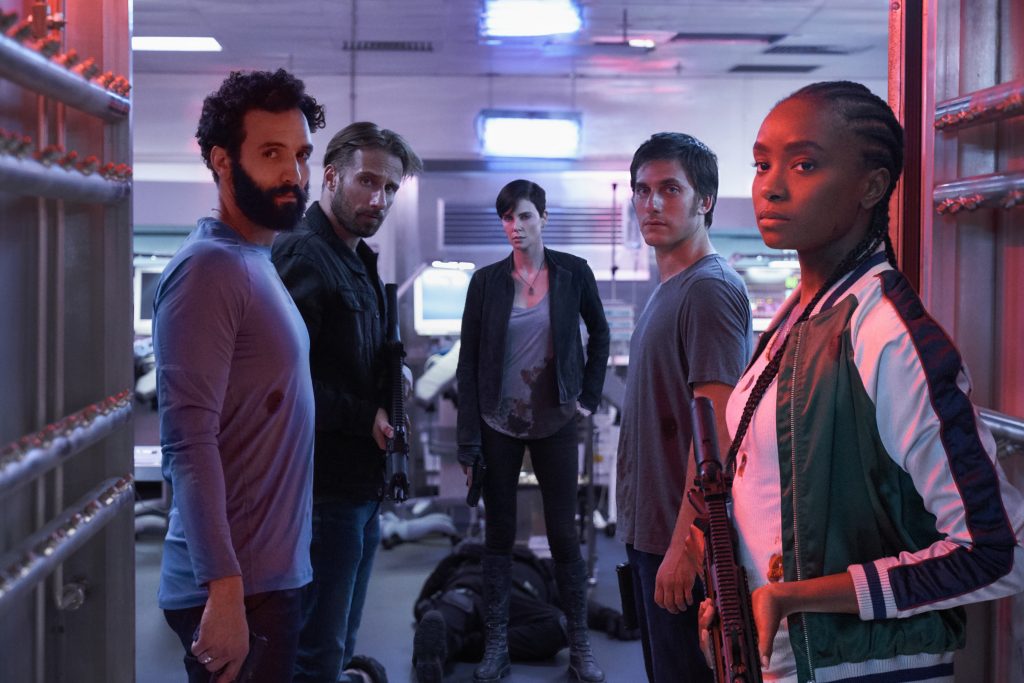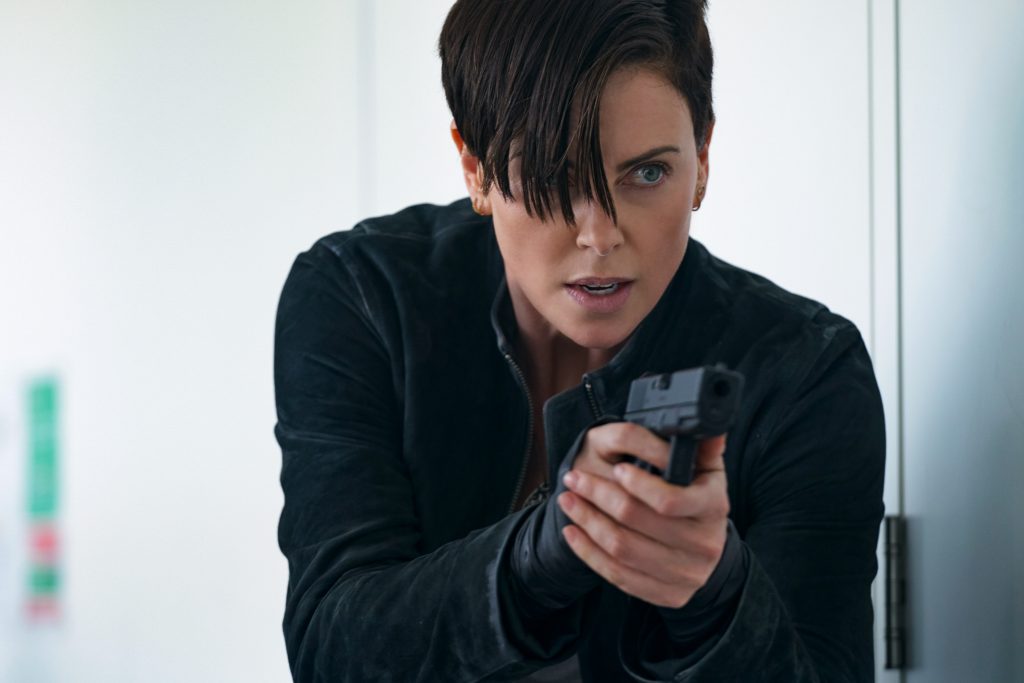December 22, 2022
by Carla Hay
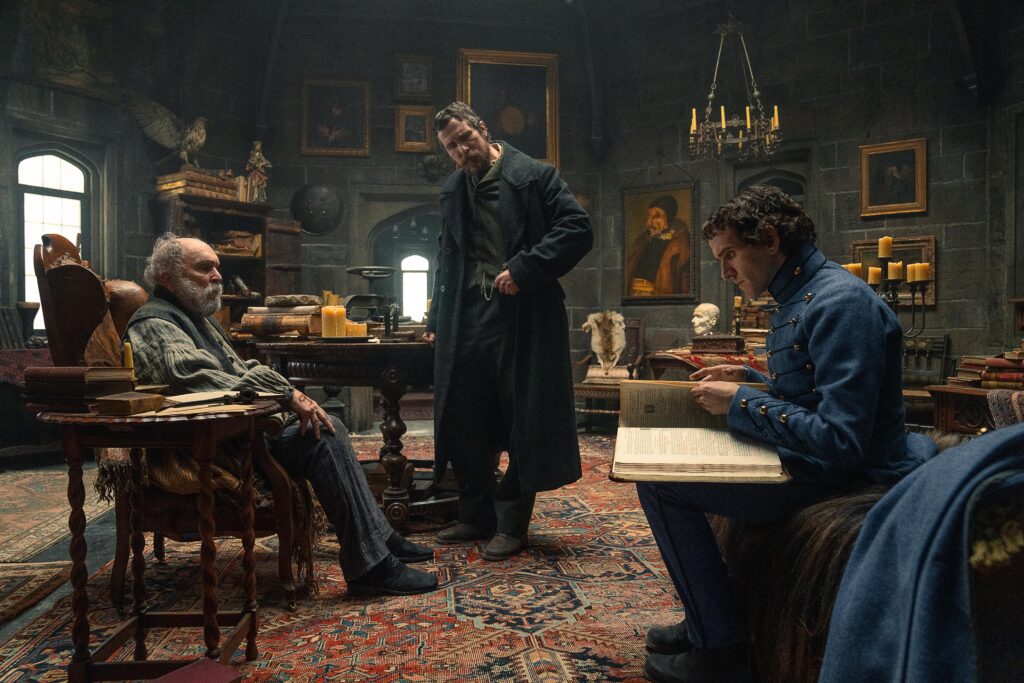
Directed by Scott Cooper
Culture Representation: Taking place in 1830, in New York state’s Hudson Valley, the dramatic film “The Pale Blue Eye” features an all-white cast of characters representing the working-class, middle-class and wealthy.
Culture Clash: A widowed constable, who is grieving over the loss of wife and his teenage daughter, is hired to solve the grisly murder of a cadet at the United States Military Academy (also known as West Point Academy), where he teams up to solve the mystery with a cadet named Edgar Allan Poe.
Culture Audience: “The Pale Blue Eye” will appeal primarily to people who are fans of the book on which the movie is based; the stars of the movie; and well-acted and suspenseful thrillers.
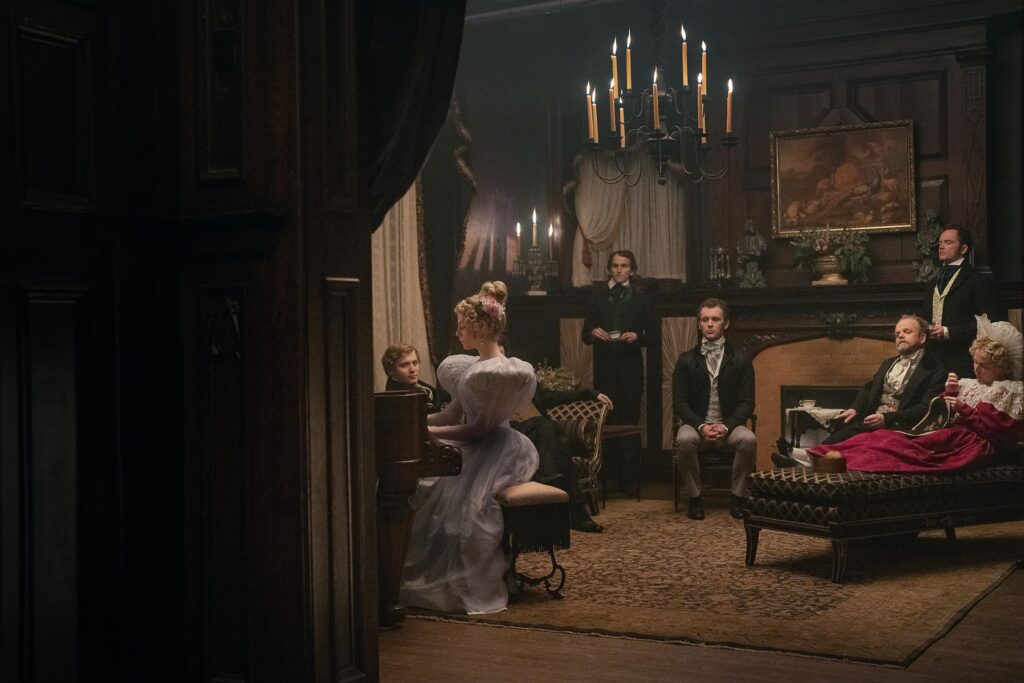
“The Pale Blue Eye” is an engaging and stylish murder mystery with a talented cast that can keep people interested when the movie’s pacing sometimes drags. A “reveal” scene looks clumsy, but the movie is an overall worthy version of Louis Bayard’s 2003 novel of the same name that is the basis of the movie. Yes, it’s another Christian Bale movie where he plays a brooding loner, but the acting is done well enough that it doesn’t feel like a rehash of his other movie roles.
Written and directed by Scott Cooper, “The Pale Blue Eye” is Bale’s third movie collaboration with Cooper. Bale and Cooper previously worked together on 2013’s “Out of the Furnace” and 2017’s “Hostiles.” In “The Pale Blue Eye” (which takes place in 1830 in New York’s Hudson Valley), Bale is protagonist Augustus Landor, a retired constable/detective who is recruited to solve an unusual murder case and finds himself investigating a possible serial killer.
Augustus, who lives alone in a remote cottage, is a widower whose wife died in 1827. He is also grieving over the more recent loss of his teenage daughter Mathilda, also known as Mattie (played by Hadley Robinson), who is shown in brief flashbacks. Augustus tells people that he hasn’t seen Mattie since she ran away with a boyfriend whom August briefly met. To cope with his grief, August has become a habitual drinker of alcohol. It’s not very clear if he’s a full-blown alcoholic, but his drinking habits have negatively affected his career and his reputation.
It’s under these circumstances that Augustus is visited in the movie’s opening scene by Captain Ethan Hitchcock (played by Simon McBurney), a no-nonsense and stern official from the United States Military Academy, also known as West Point Academy, because of its location in West Point, New York. Captain Hitchcock doesn’t waste any time in saying why he is visiting Augustus: A second-year cadet at the academy has been murdered, his body was found on the school’s campus, and the academy wants Augustus to solve the crime before it becomes a major scandal.
The murder victim, whose name was Leroy Fry (played by Steven Maier), was found hanging from a tree, with his feet touching the ground, indicating that it wasn’t a suicide. His heart was removed with the precision of someone with surgical knowledge to make a straight and orderly incision. This gruesome mutilation is something that the academy’s officials don’t want to be widely known when people find out about the murder. They also want to work with Augustus to keep the investigation as private as possible, instead of going to the local police department. Despite his drinking problem, August is considered one of the best detectives in the area.
At first, August seems hesitant to take the case, but he soon agrees to investigate the crime. Captain Hitchcock gives Augustus a ride to the academy, where August meets Superintendent Thayer (played by Timothy Spall), who isn’t as emotionally aloof as Captain Hitchcock, but he conducts himself with an air of impatient authority. Superintendent Thayer tells Augustus soon after meeting him: “I’m asking you to save the honor of the United States Military Academy.”
Augustus immediately begins by interviewing possible witnesses, as well as the academy’s doctor performing the autopsy. Dr. Daniel Marquis (played by Toby Jones) is wealthy and very good at his job, but he has the type of arrogance where he lets people know that he thinks he’s the smartst person in the room. In the medical exam room, Dr. Marquis tells Augustus that the murderer isn’t necessarily someone who’s a doctor but someone who needed good light and knew where to cut, in order to remove the heart without cutting or damaging the lungs.
While examining the body, Augustus finds a very important clue: The murder victim had a torn piece of paper clutched inside one of his hands. The paper is a hand-written note with most of the words missing. Augustus eventually gets some help in deciphering what the note says.
During the early part of this investigation, meets an eccentric cadet named Edgar Allan Poe (played by Harry Melling), who cryptically tells Augustus that the murderer is probably a poet. Another cadet tells Augustus that he saw a suspicious-looking man lurking near the crime scene. But the only description that this witness can give is that the man looked like he was wearing an officer’s jacket with the bars removed from the jacket arm.
Augustus finds out that Leroy and his roommate Cadet Loughborough (played by Charlie Tahan) came to dislike each other. Cadet Loughborough says in his interview with Augustus: “I wouldn’t call it a ‘falling out.’ It’s a matter of diverging paths. He fell in with a bad bunch.” However, Cadet Loughborough says he doesn’t know any details about any of Leroy’s new friends.
Captain Hitchcock has been tasked with putting pressure on Augustus to solve the crime as soon as possible and overseeing Augustus’ investigation. And so, Captain Hitchcock does some hovering during the investigation and sometimes shows up unexpectedly in places, in order to catch Augustus and other people off guard. Augustus is more of a freewheeling individual who doesn’t see life in such a rigid way. And you can easily predict what that means: Captain Hitchcock and August are going to clash with each other.
Captain Hitchcock has a low tolerance for people who don’t take things as seriously has he does. He sets three ground rules for Augustus that he says can’t be broken: (1) Report all findings to Captain Hitchcock; (2) Don’t tell anyone outside the academy about the investigation; and (3) No drinking alcohol during the course of the investigation.
What does Augustus do in reaction to these rules? He goes to a local pub to get drunk. As he says in a toast to the bartender, “Here’s to rules.” The pub is also where Augustus meets a bar maid named Pasty (played by Charlotte Gainsbourg), a friendly and soft-spoken employee who observes a great deal of what goes on in the pub. Quicker than you can say “lonely widower,” Augustus and Charlotte end up in bed together for a casual fling.
The pub is also where many of the cadets hang out in their free time. It’s here that Augustus sees Edgar, a highly intelligent oddball who is a social misfit at the academy. Augustus and Edgar strike up a conversation, where Augustus asks Edgar what he meant by the murderer being a poet.
Edgar explains that the heart is more than a body organ: It’s a symbol. Edgar says, “To remove a man’s heart is to traffic in symbol.” “The Pale Blue Eye” has several references to hearts removed from bodies. Of course, it’s a nod to the real Edgar Allan Poe, who became a famous horror/mystery novelist, with one of his most well-known works being the short story “The Tell-Tale Heart,” about a killer haunted by the sound of a murder victim’s beating heart.
“The Pale Blue Eye” is a fictional story, but it cleverly implies that if the real Edgar Allan Poe actually existed in this story, “The Tell-Tale Heart” would have been influenced by his experience working on this murder case. Later in the movie, Edgar recites a line from the real “Tell-Tale Heart,” which includes a description about the murderer being annoyed by his victim having an eye cataract: a “pale blue eye.”
Augustus is impressed enough by Edgar to secretly hire Edgar to assist Augustus in the investigation. Augustus tells Edgar that it’s a non-paying job, but Edgar doesn’t seem to mind, because he’s eager to be involved in helping solve a mystery. One of the first things that Augustus asks Edgar to do is help decipher the torn note that was found in Leroy’s hand. Augustus says he doesn’t like to read many books and isn’t as well-read as Edgar. But at the same time, Augustus doesn’t want Edgar to completely upstage him in this investigation.
It should come as no surprise that Leroy isn’t the only one who ends up dead in this story. Another cadet is killed in a similar manner. And it sends the academy officials into a panic that the killer is specifically targeting cadets at the academy. If so, why? It leads to even more pressure on Augustus to find the murderer.
Along the way, other people are introduced who might or might not have clues that could help solve this mystery. There is suspicion that the murderer is cutting out hearts as part of an occult ritual. And so, Augustus and Edgar meet with Professor Jean Pepe (played by Robert Duvall), an expert in symbols, rituals and the occult. Duvall’s screen time in the movie is less than 15 minutes, but his wise and jaded Jean Pepe character plays a pivotal role in the movie.
During the investigation, Augustus and Edgar also meet Dr. Marquis’ wife Julia Marquis (played by Gillian Anderson), who is very sensitive and high-strung. Dr. and Mrs. Marquis have two children: Artemus Marquis (played by Harry Lawtey), who is a popular cadet at the academy, and Lea Marquis (played by Lucy Boynton), who is a sought-after bachelorette with a talent for playing the piano. Artemus and Lea both sometimes act a little spoiled and entitled, but they look out for each other and have a strong family bond.
Edgar becomes smitten with Lea, and they start casually dating. Lea wants Edgar to be her platonic friend, but he is hoping that their relationship will develop into a romance. On one of their dates, Edgar is alarmed when Lea goes into a seizure but just as quickly recovers. Meanwhile, a cadet named Randolph “Randy” Ballinger (played by Fred Hechinger) also has a romantic interest in Lea, and he gets jealous of Edgar. Of course this would-be love triangle leads to problems.
“The Pale Blue Eye” has many of its best moments in showing the rapport between Augustus and Edgar, who are from different generations and have different personalities, but both characters have moments of emotional vulnerability. Their relationship is sometimes compatible and sometimes uneasy while working together in this very stressful murder investigation. Bale and Melling adeptly handle their respective roles, with Melling tending to be a little more melodramatic in portraying socially awkward Edgar. Augustus and Edgar (who became an orphan in his childhood) don’t have much in common, but they both sense that they are alone in the world and have an unspoken camaraderie of feeling like maverick outsiders.
“The Pale Blue Eye” takes place in an unnamed winter month with snow outside, so the cinematography by Masanobu Takayanagi is a gorgeous palette of icy blue in exterior scenes and gold/brown for interior scenes. The movie’s production design and costume design are also well-done. And the musical score by Howard Shore is very effective in how it builds the story’s tension.
Where “The Pale Blue Eye” falters is in how the movie’s tone and pacing can occasionally get a little dull. There’s also a crucial scene involving a blazing fire that doesn’t look completely genuine. Without giving away too many details, it’s enough to say that in real life, people would be running away from this fire a lot quicker than what’s shown in the movie. However, “The Pale Blue Eye” does not disappoint when it comes to the acting performances. Viewers who might be the most disappointed in the movie will be those expecting “The Pale Blue Eye” to be more of an action film.
For people who don’t know how the story is going to end, “The Pale Blue Eye” is a somber and thoughtful mystery that will keep viewers guessing about what will happen next. Just when it looks like the movie can end one way, there are more revelations. Because of a surprise twist which is handled a lot better than an earlier plot twist, “The Pale Blue” does not go down a predictable path and should satisfy fans of murder mysteries that don’t completely follow the usual formulas.
Netflix will release “The Pale Blue Eye” in select U.S. cinemas on December 23, 2022. The movie will premiere on Netflix on January 6, 2023.

